| Medals. European-African-Middle Eastern Campaign Medal, Victory Medal WWII, and Unknown medal. I have reviewed every medal and cannot find it. According to the Order and Medals Society of America, the third ribbon was a privately produced, which went by several names (e.g., Allied Ribbon; Interallied Ribbon). The colors represent those of the WWI allies. The ribbon was used on a few city and local WWI service medals. However Thomas was in WWII not WWI, "re-use" of obsolete ribbon stock is one explanation we have been exploring. Another idea is that Thomas might have bought it (he does not remember), as an unofficial ribbon after his military service was over, possibly as part of a veterans association, as a member, it has not been definitely ascertained exactly what it was for at this point in time but it turns up on original U.S. WW2 veterans bars fairly frequently. A few documented U.S. European Campaign Veterans bar sport it. If anyone knows for sure post it on MyWarHistor |
 |
| Bronze Star, European-African-Middle Eastern Campaign Medal with Two Battle Stars (Rhineland and Central Europe), World War II Victory Medal ,Interallied Medal? Not official?, Army Of Occupation Medal (Germany), and Good Conduct Medals from World War II. |
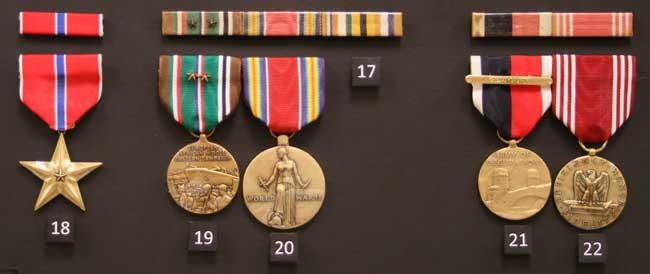 |
| Frame of all Thomas' artifacts from World War II. |
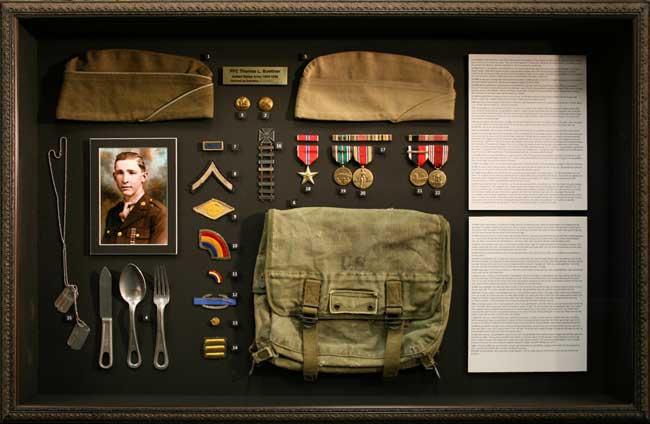 |
| My grandfather's uniform accessories. Starting at the top left and going clockwise. Dog tags, presidential unit citation, infantry lapel, combat infantry badge, 42nd division (rainbow), qualification badges, ribbons, three 6-month overseas bars, private stripe, 42nd pin, and ruptured duck. |
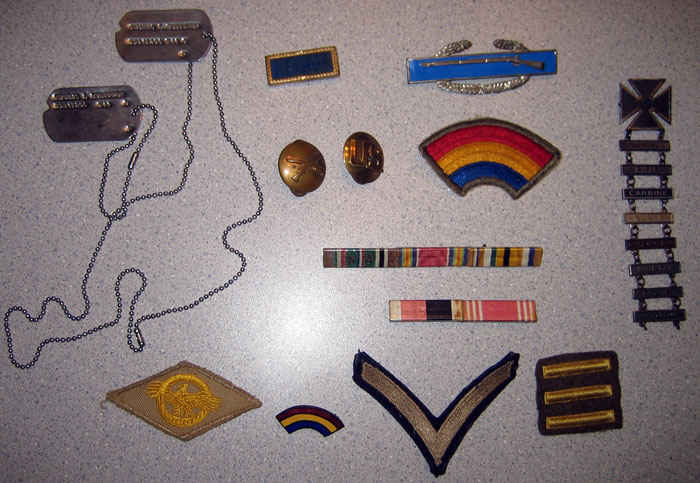 |
| Utensils used by my grandfather. He said that the spoon was the best one and he used it for everything. The spoon is much larger than a tablespoon. |
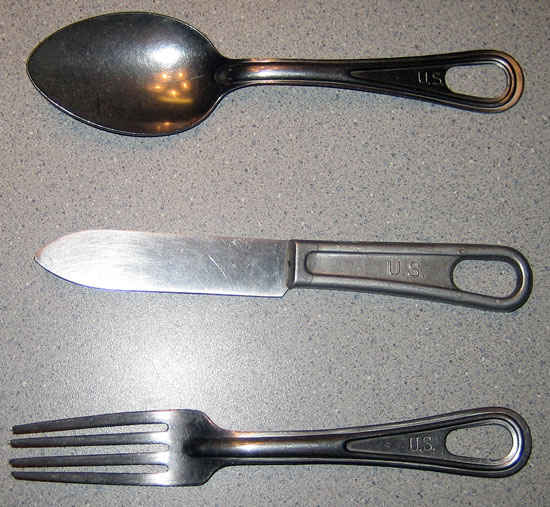 |
| To the left Thomas and Donald Buettner in Austria. |
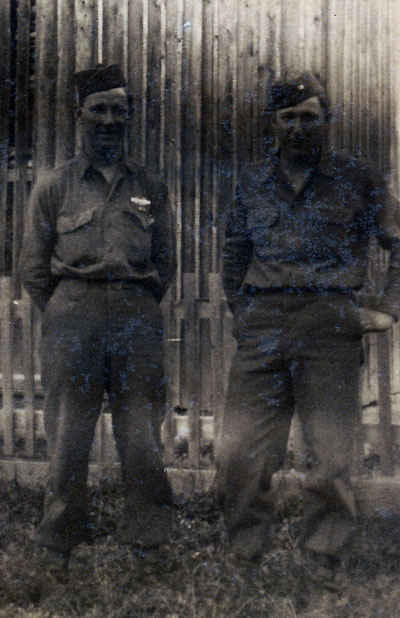 |
| Schweinfurt, Germany liberated displaced persons. There is a 12 foot hole in the ground near this picture where my grandfather and 5 other guys spent the night. |
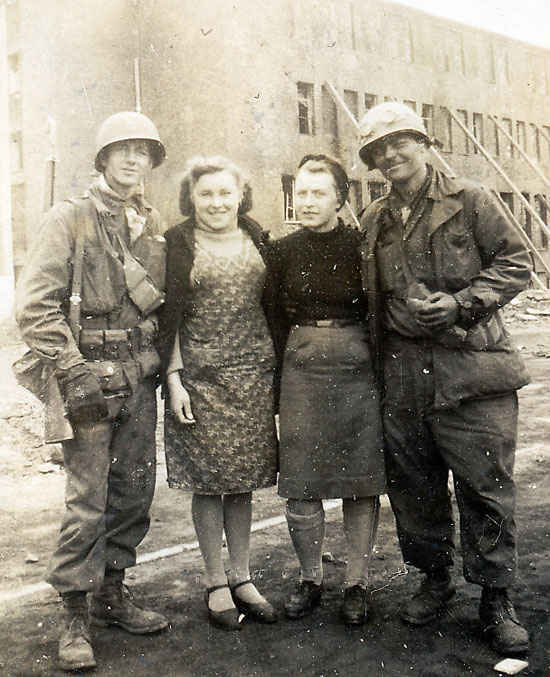 |
| New York City from Europe. Soldiers would take a taxi to the train station. Taxi drivers would give good directions to the soldier's and even gave them free fair. There were impersonators who would wear service clothes to abuse this courtesy. July 1946. |
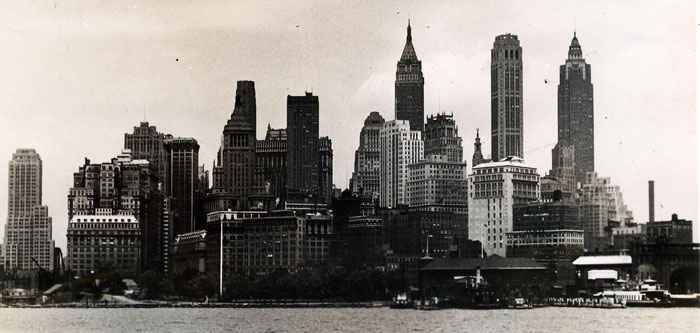 |
| This one of the pages in the tour excursion book. My grandfather went to all of these places listed. |
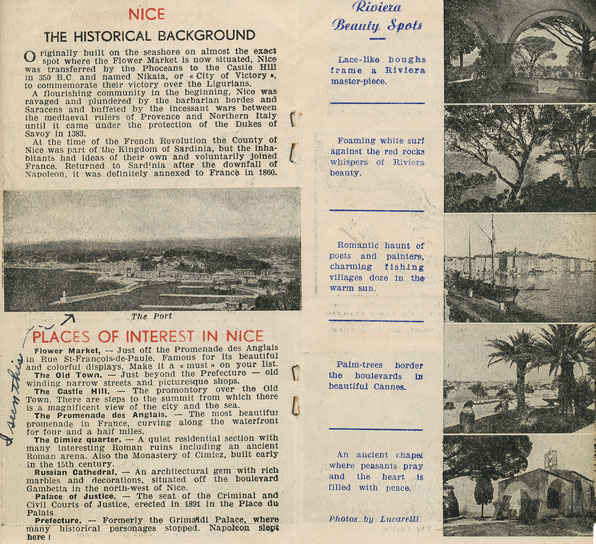 |
| Riviera guidebook for post war soldiers. Taking tours after the war by service man was highly organized and very popular. My grandfather went on a 7 day tour of various locations in Nice, France after he was in the hospital to recuperate. |
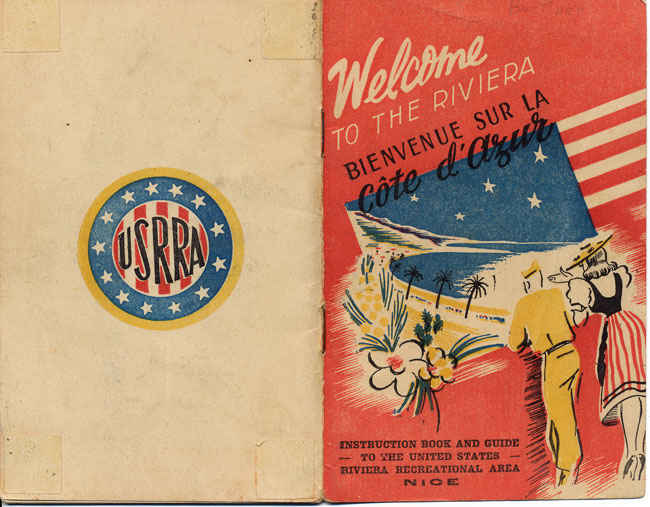 |
| Thanksgiving day feast, November 1945. |
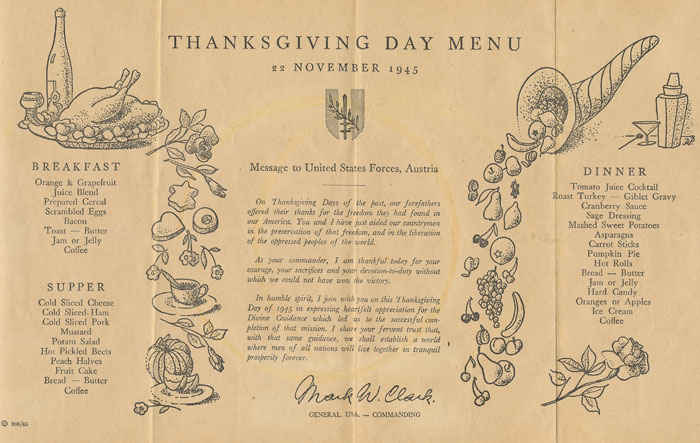 |
| Parker and Betty in Hallein, Austria. Parker was the BAR man and my grandfather was the assistant BAR man. Parker was my grandfather best friend during the war. |
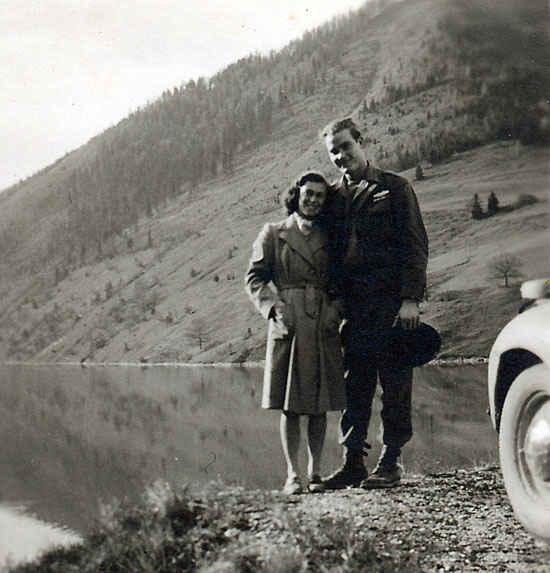 |
| Far left top row is my grandfather and to the right of him is Parker. Shortly after this picture was taken in July, 1946 a plane flew over and dropped a bomb that landed 40 feet away. My grandfather said he moved pretty quickly during that episode. Notice that date of July, 1946 the war had ended in Germany by that time, something does not seem right. Germany surrendered on May 8th. |
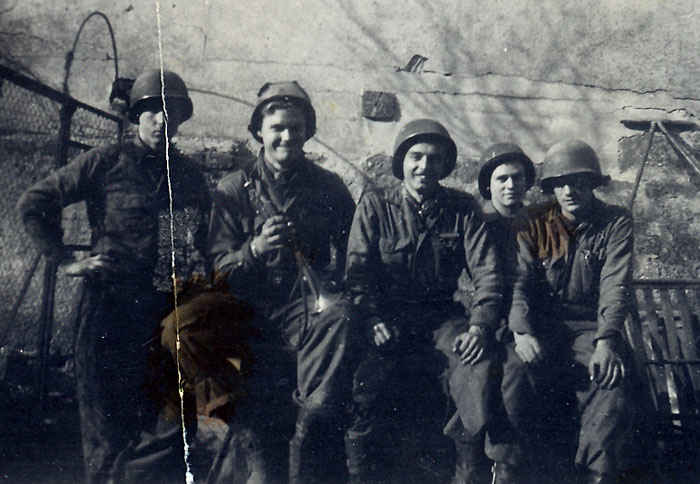 |
| This is my grandfather's brother Donald. Donald was part of the 93rd Ordnance maintenance company and was actually able to meet up during the post war which is pretty amazing considering the millions of soldiers who were overseas. |
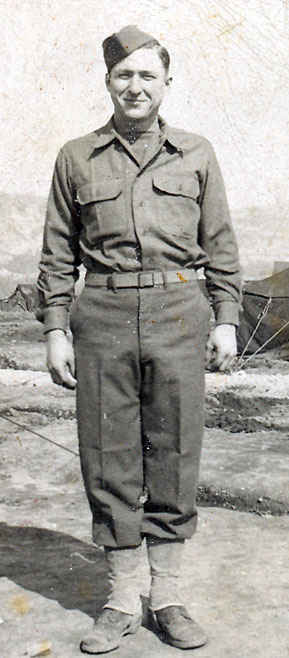 |
| In Hallein, Austria my grandfather stand in front of "his house." |
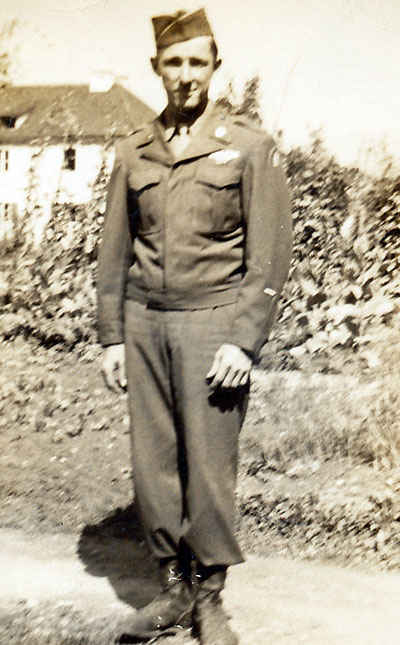 |
| Letter from President Truman. Every service man received one of these upon discharge. |
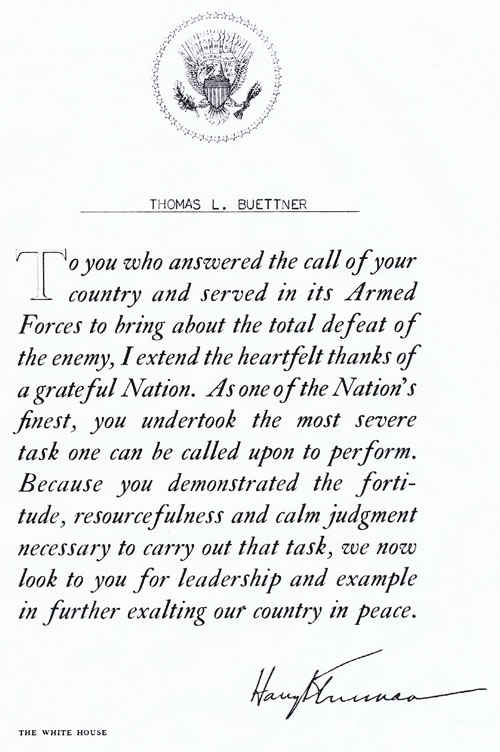 |
| This is the Austrian family my grandfather stayed with after the war ended in Hallein. Staying with a local family was known as billeting. Billeting essentially means quarters or barracks and this was a frequent occurence for soldiers in post World War 2 Europe. Billeting by the British in colonial times was one of the causes of the American Revolutionary War but my grandfather did not have any problems. |
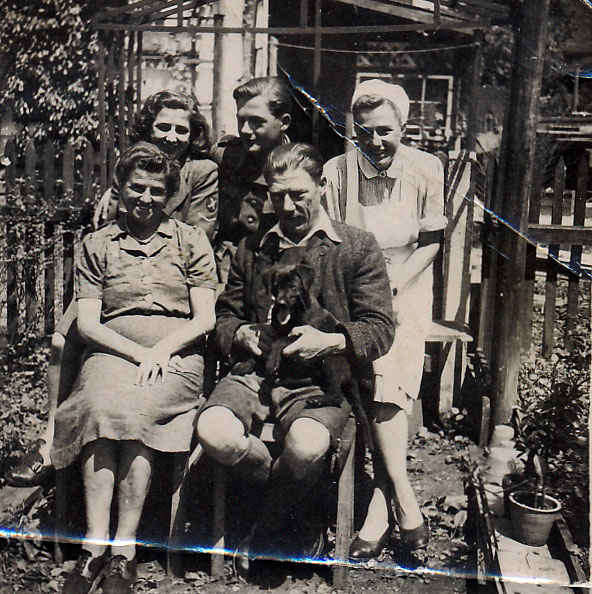 |
| Picture of my grandfather before he left for Europe on January 18, 1945. Notice the flag in the window, each star stood for a soldier in the war. One for him and one for his brother Donald. The flag was known as the "war mother's flag." A gold star stood for a soldier lost and a blue star stood for a soldier in harm's way. |
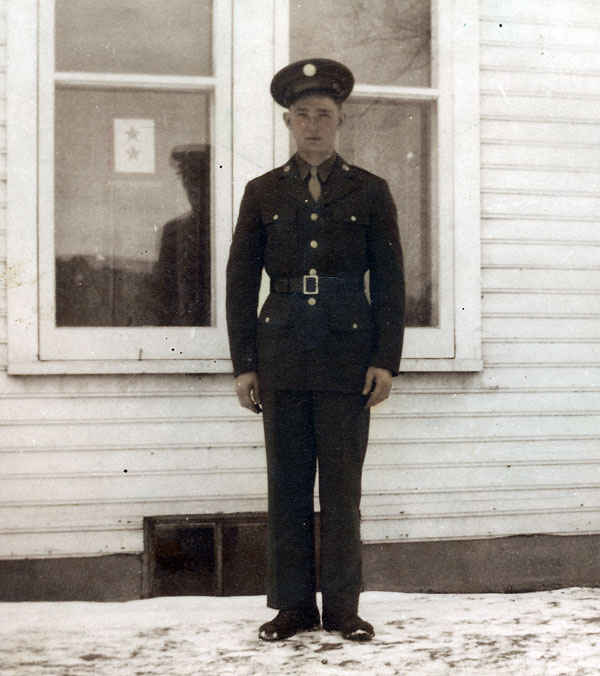 |
| The Nebelwerfer had six 150 mm barrels, from which it fired 75 pound rockets; a full salvo spread over a period of ten seconds. The loud screeching noise of the rounds led U.S. soldiers to nickname the gun the "Screaming Mimi." My grandfather said if you could hear it scream you did not have to worry about because it was going over your head. However, if you did not hear anything you could get hit at anytime. |
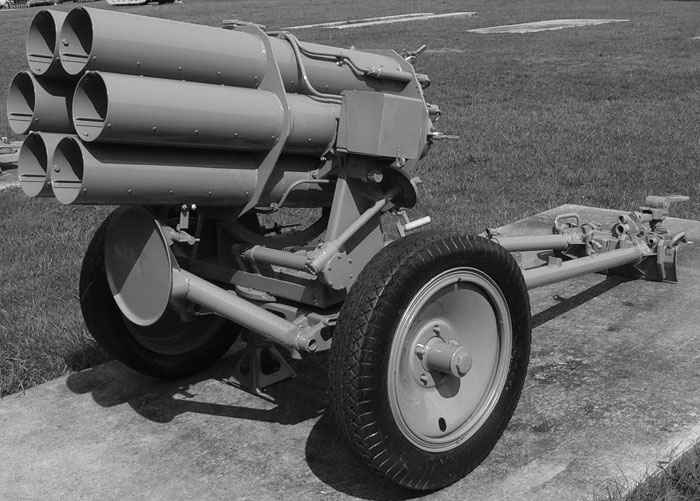 |
| Map of 42nd Infrantry Division (Rainbow) across Europe. Assigned to VI Corps, Seventh Army part of Task Force Linden. 42nd consisted of three regiment (222nd, 232nd, & 242nd) . 42nd earned battle stars for Central Europe and Rhineland. |
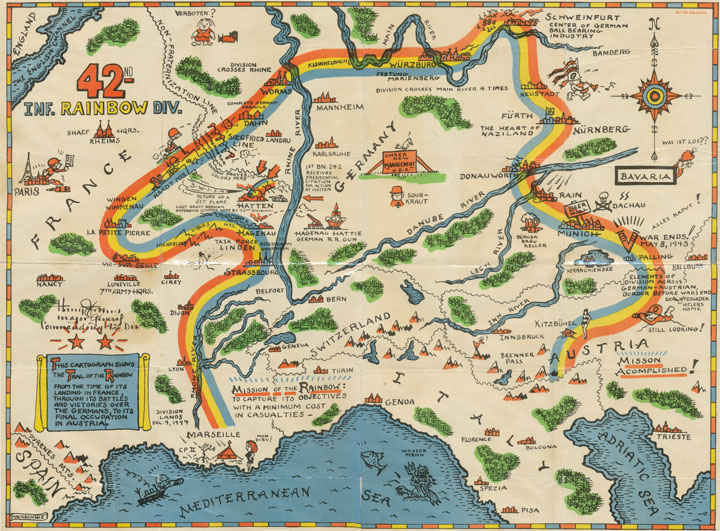 |
| Hallein is a town in the Austrian state of Salzburg. Hallein was the site of a work camp annex to the Dachau concentration camp but when my grandfather's regiment 242nd liberated it, the US Army used it as a prisoner camp. My grandfather spent much of his time overseas guarding prisoners in Hallein once the war ended. |
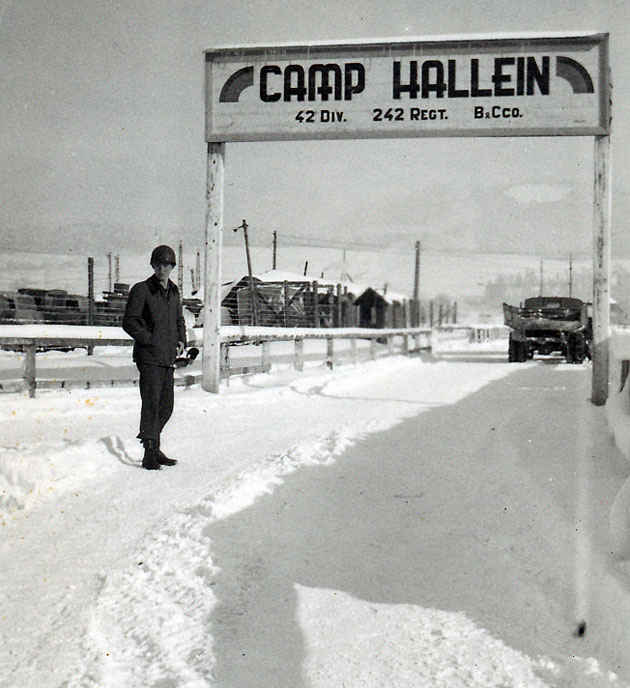 |
| Qualification badges awarded to my grandfather in basic training. |
 |
| Various colors of army hats worn by my grandfather. |
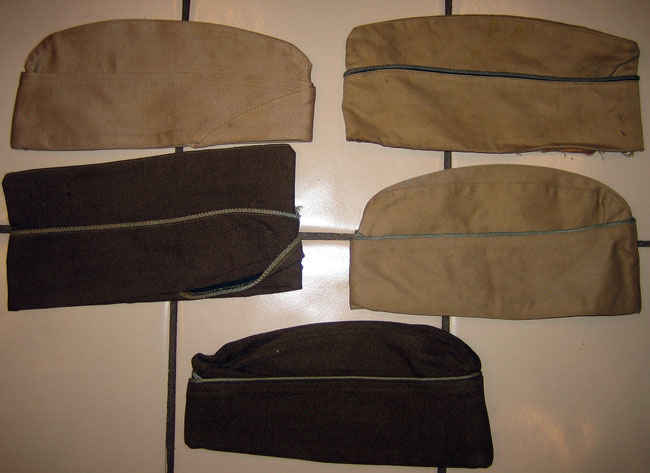 |
| Bronze star awarded to my grandfather. |
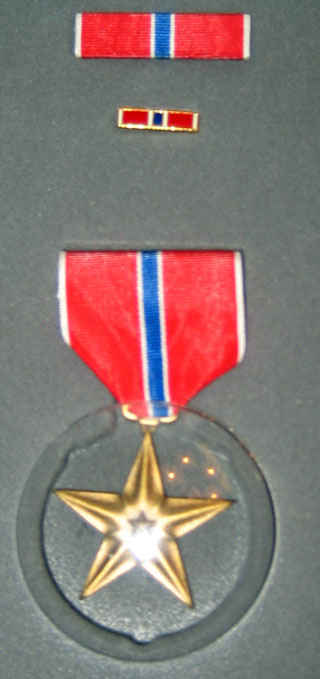 |
| Back of the pack used by my grandfather. |
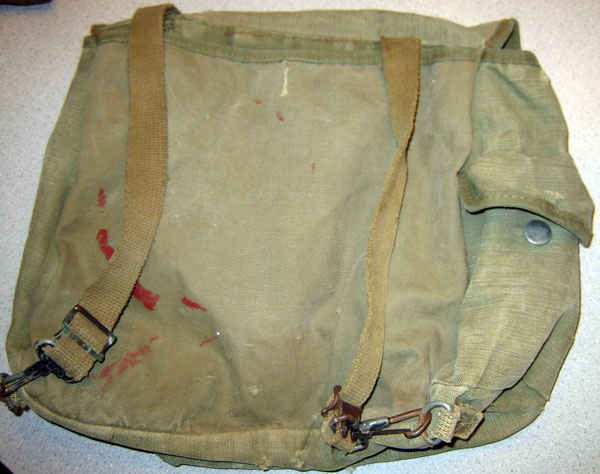 |
| Pack used by my grandfather. |
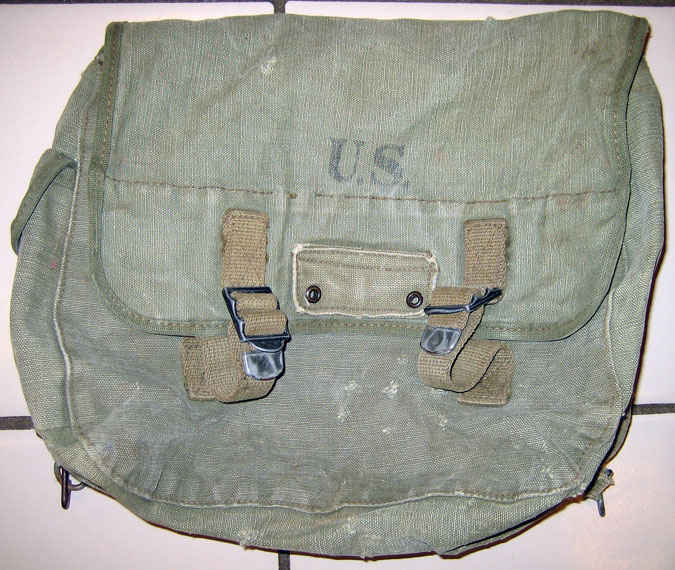 |
| This is a picture from the 42nd infantry division book. We think my grandfather is in the middle. My grandfather said that he went through many forests that looks like this picture and often times a camera man was there taking pictures. |
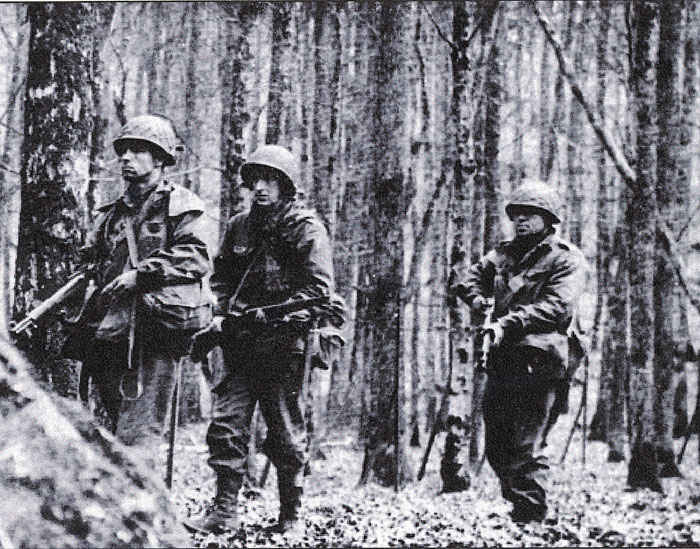 |
| Salzburg Castle, Austria |
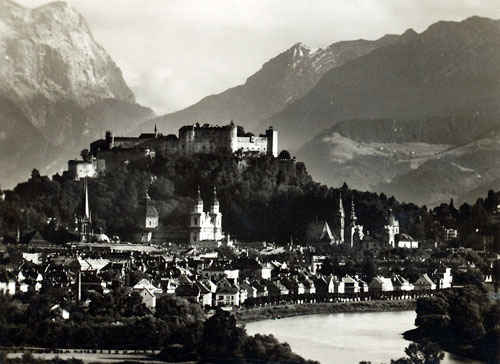 |
| Salzburg, Austria |
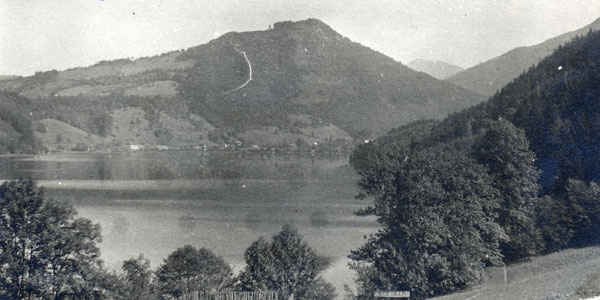 |
| Left Roger Beach and Ralph Coy. |
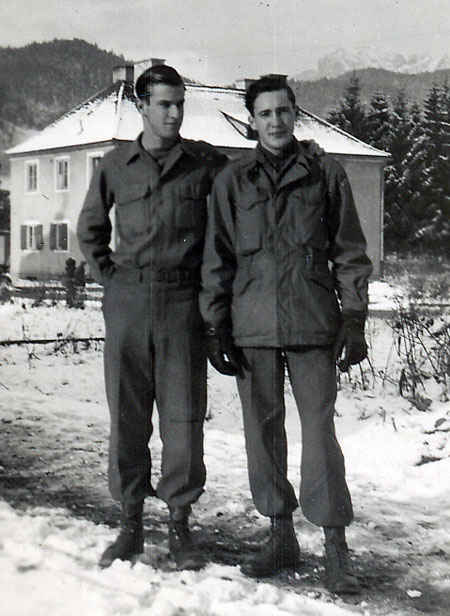 |
| Belts giving haircut to Parker. My grandfather second from the left. |
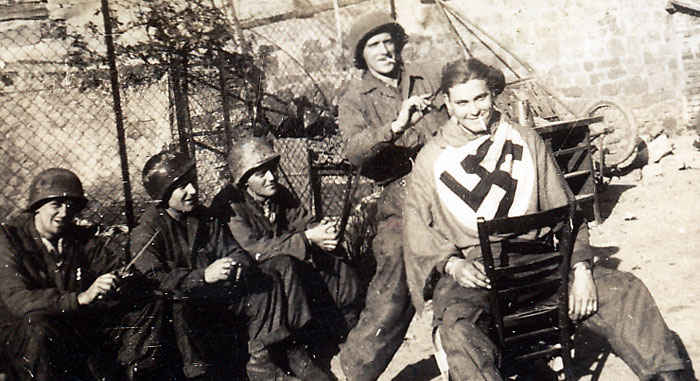 |
| My grandfather Munich, Germany General Hospital May 1946. |
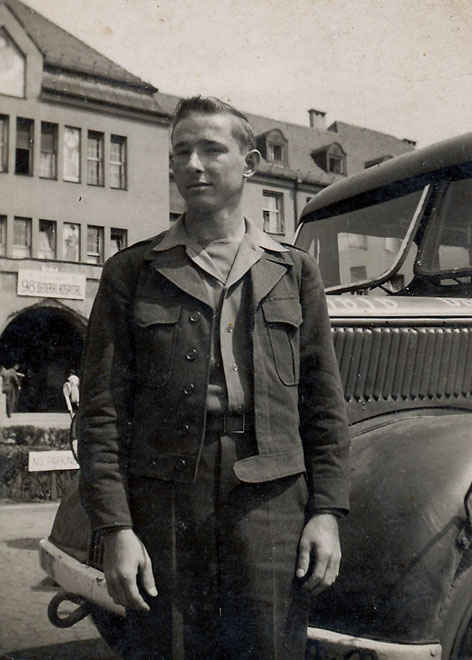 |
| Main mess hall included a Catholic church, red cross, and a Protestant church. |
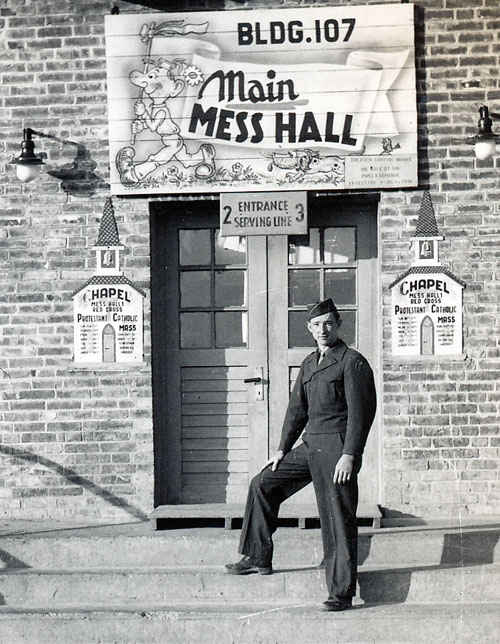 |
| My grandfather by a Lake in Hallein, Austria. |
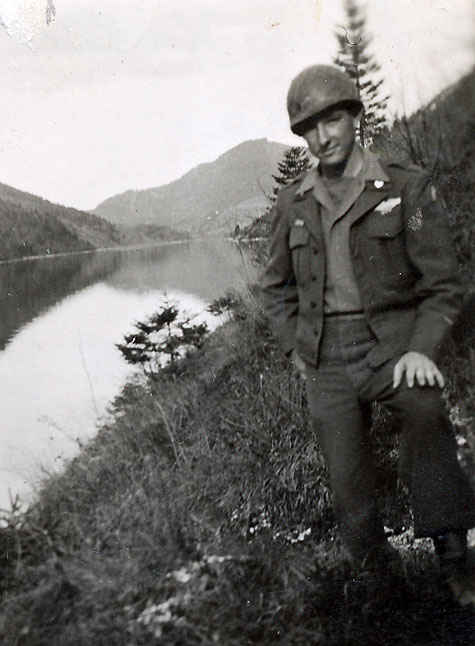 |
| Hallein, Austria. My grandfather to the right. |
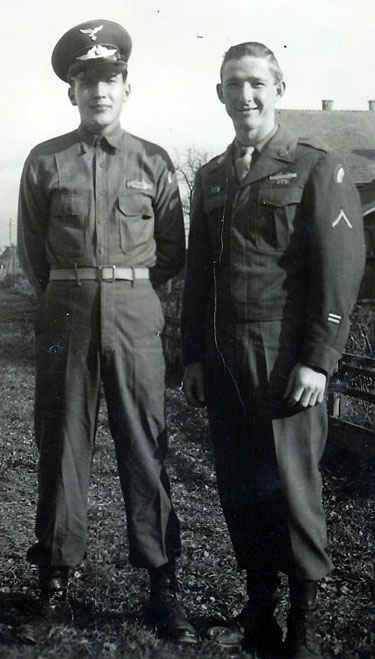 |
| Wurzburg Castle, Germany |
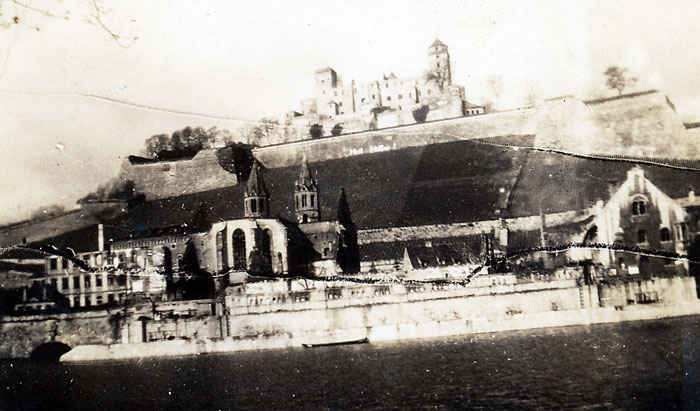 |
| Second part of the typed up letter that my grandfather kept track of all the cities he was in. |
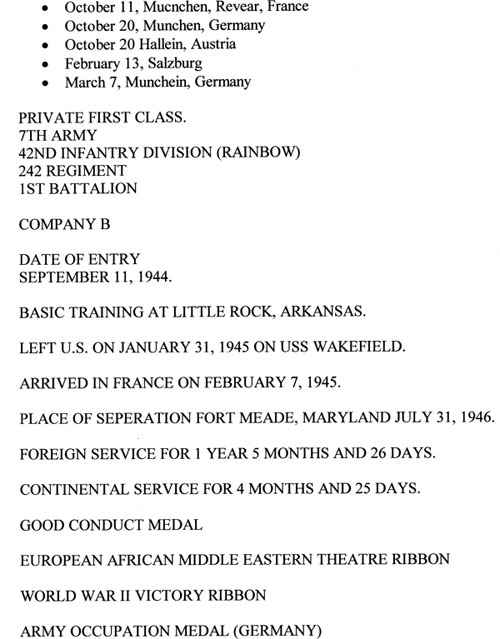 |
| This is a typed up letter that my grandfather kept track of all the cities he was in. |
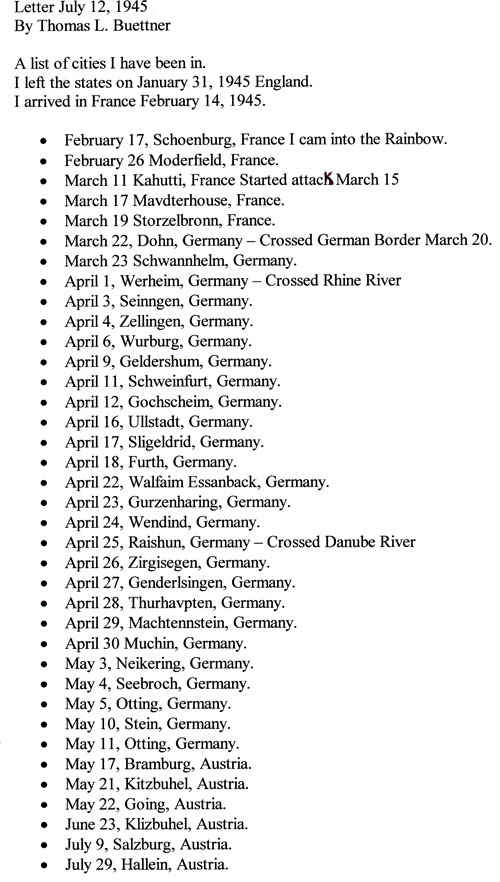 |
| Left Roger Beach and Ralph Coy. |
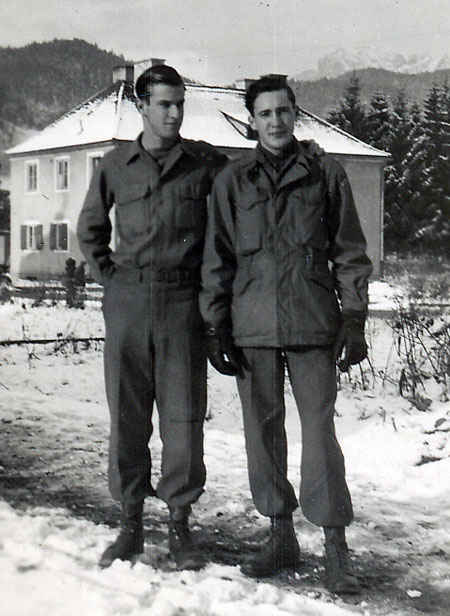 |
| Monte Carlo excursion option, my grandfather did not go on this one. |
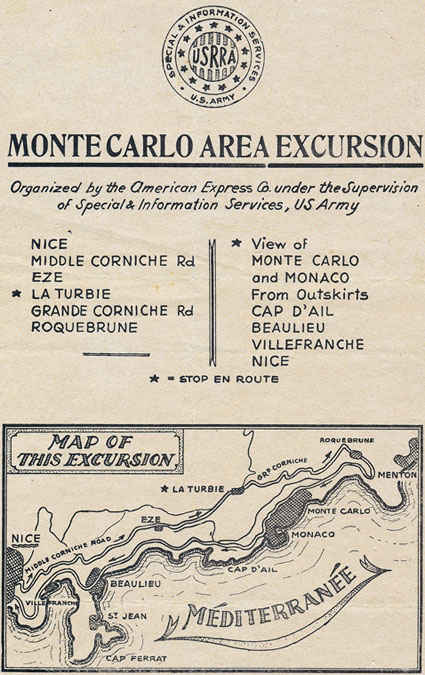 |
| Soldier's individual pay record book. Was to insure soldier's against delay in receiving their money. |
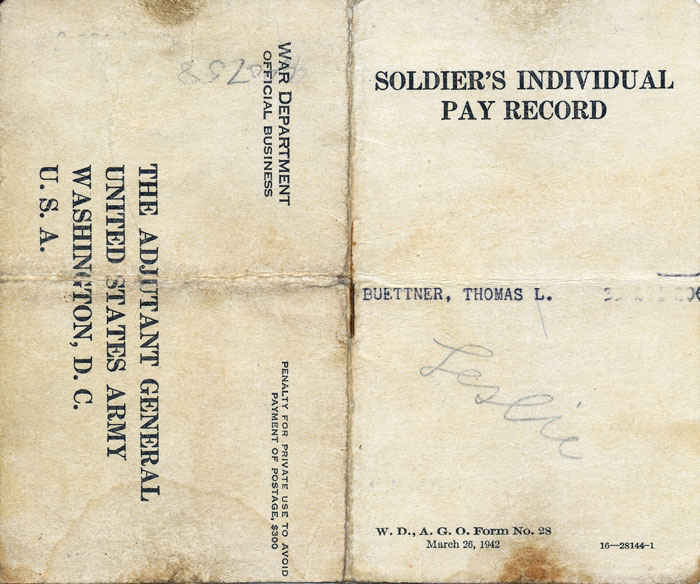 |
| Picture of the Westminster Victory, this is the ship my grandfather rode back on from Europe to New York City. Go up about two inches from the bottom and one inch from the right and you can see him marked with a dot. When one got off the boat there were photographers and the soldiers would give them money to mail the photos to their home. |
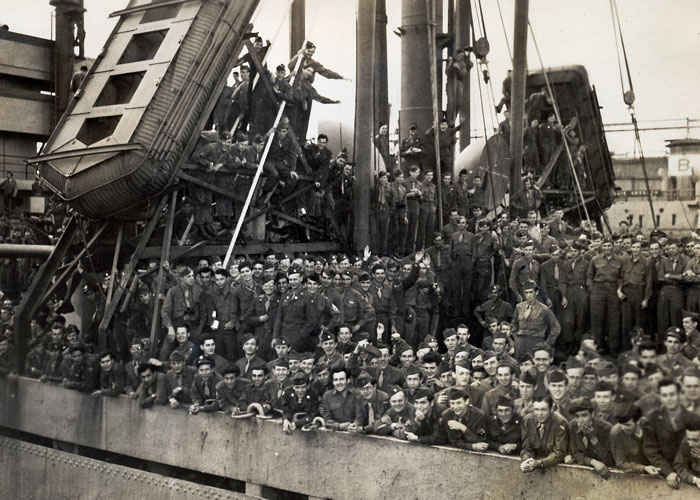 |
| This is a typical letter that my grandfather wrote to his mother. This letter talks about how on October 17, 1945 he rode in a C47 to France. |
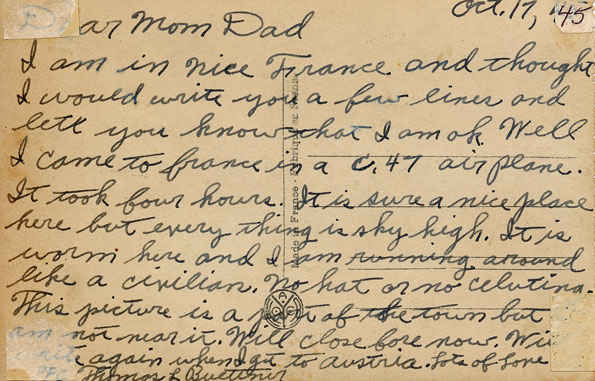 |
| Excursion to Grasse in post war Europe. Can one imagine being 19 and 20 never being more than 30 miles from home and seeing the best that France has to offer. |
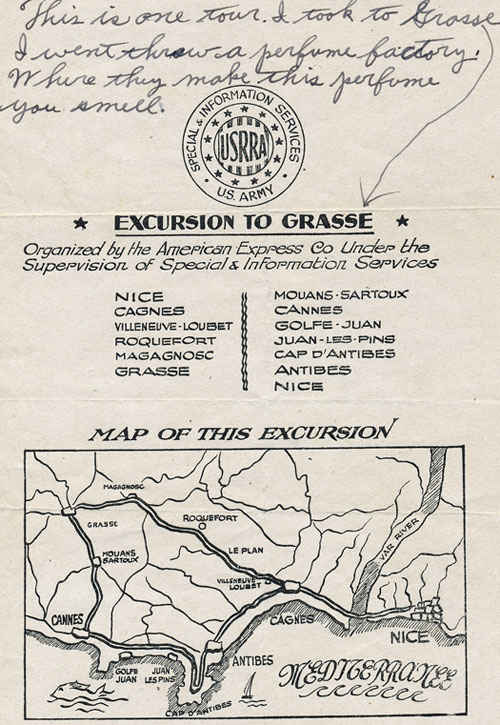 |
| Munich, Germany 98 General Hospital, May 1946. My grandfather is to the left. |
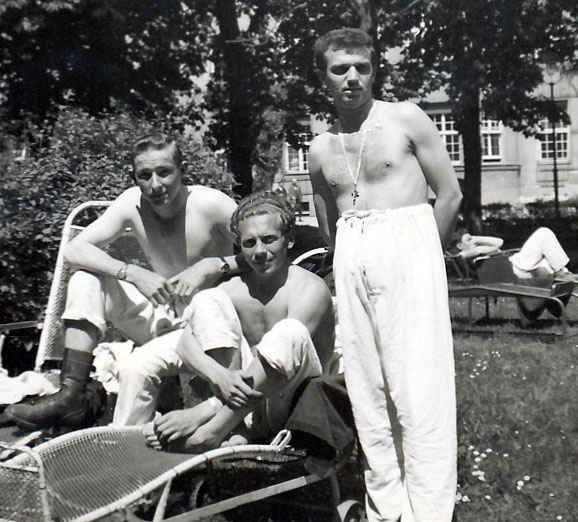 |
| This is the last picture of my grandfather in his Army uniform. This was taken in New York shortly after he arrived on a merchant ship back from Europe, July 1946. Left Roy Brown, Thomas Buettner, Joseph Brooks. |
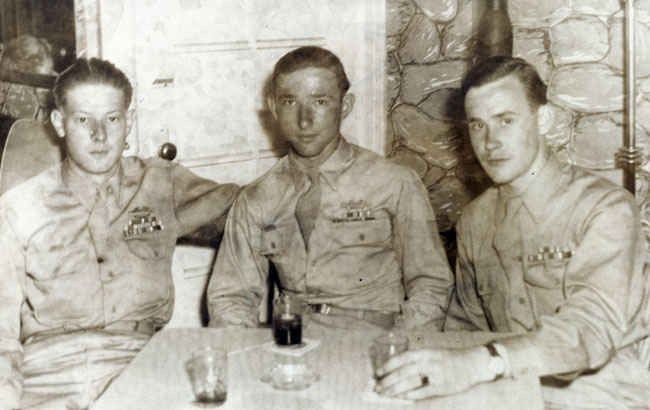 |
| Hallein mess hall. Notice the kids outside looking for free donuts and coffee. |
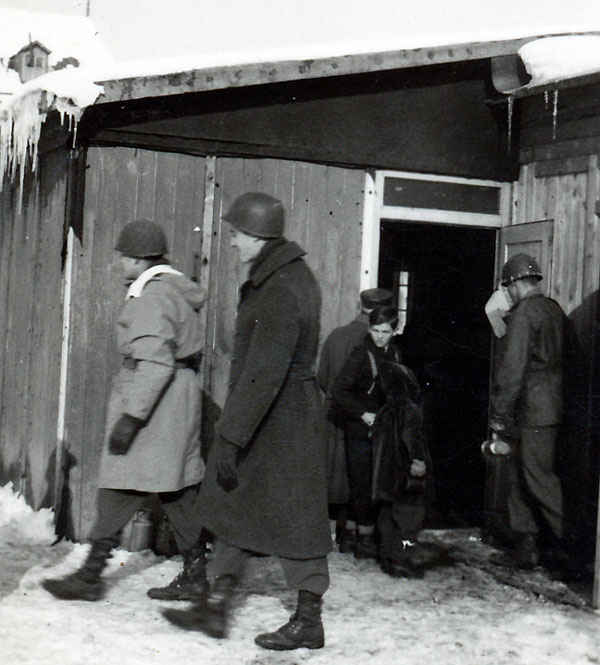 |
| Picture of Mozart's in Salzburg which is Mozart home town. My grandfather saw many amazing historical icons in Salzburg. |
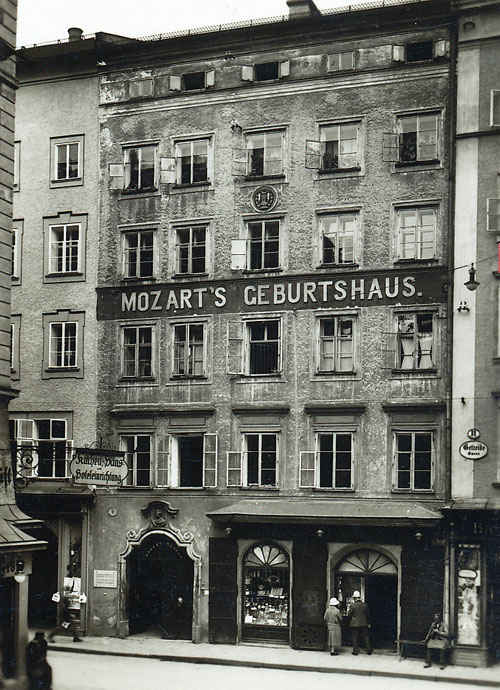 |
| Pre entering the way picture of my grandfather. |
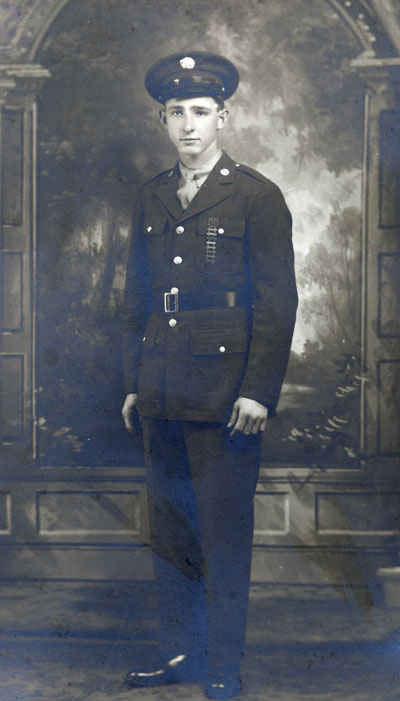 |
| My grandfather on a water cooled 30 caliber machine gun guarding SS soldiers. |
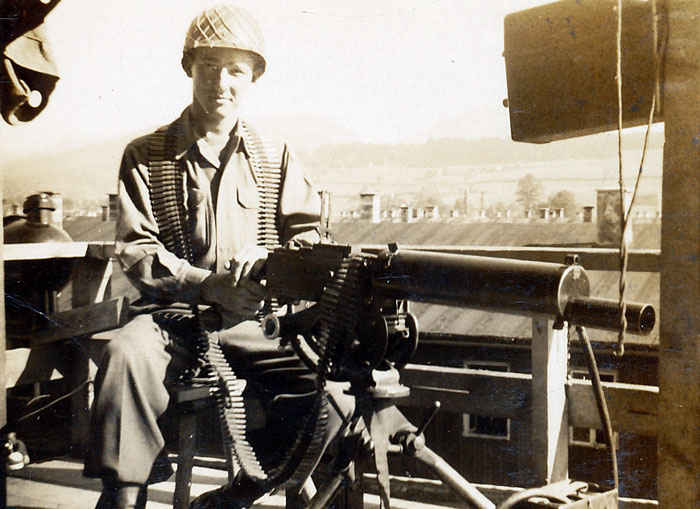 |
| Schweinfurt, Germany near ball bearing plant in April 11, 1945.Schweinfurt was the location of most of the ball-bearing production in Nazi Germany. Even with many heavy raids against the ball bearing plant, Germany continued to produce ball bearings at high levels. |
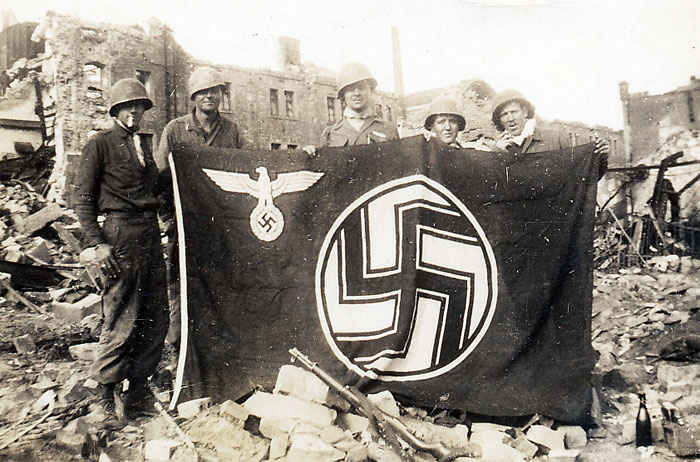 |
| Picture of Ralph Coy, my grandfather was with Ralph start to finish. |
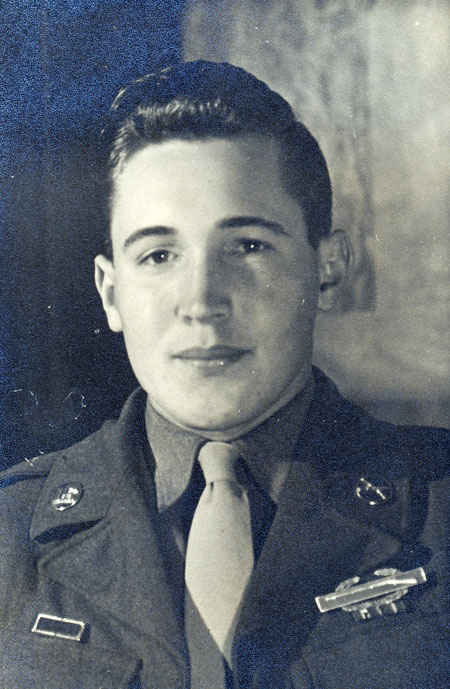 |
| 42nd Infantry card received after Thomas was honorably discharged. |
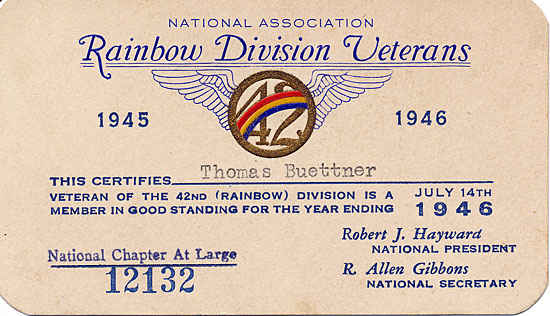 |
| Pre Europe picture of my grandfather. Notice his skill badges, he pretty much has all of them. |
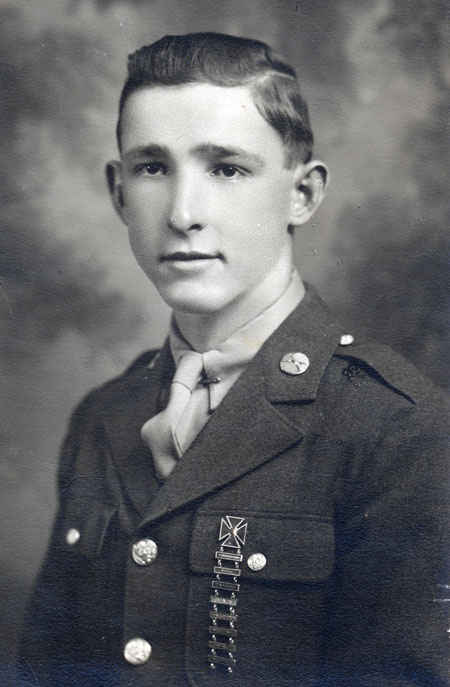 |
| One of the many postcards my grandfather got in Austria. He had visited most of the places in all the postcards he received. |
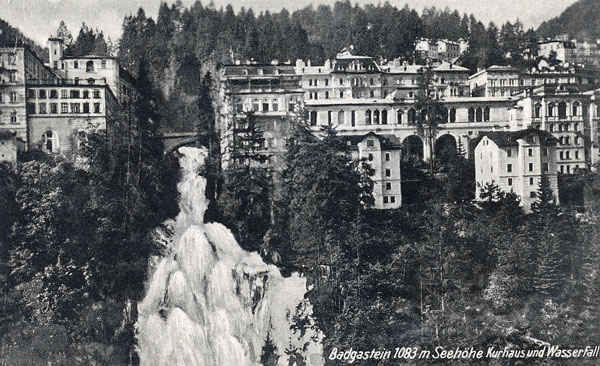 |
| "Piss call", as my grandfather calls it. During the war my grandfather and his unit would march anywhere from 20 to 30 miles a day. |
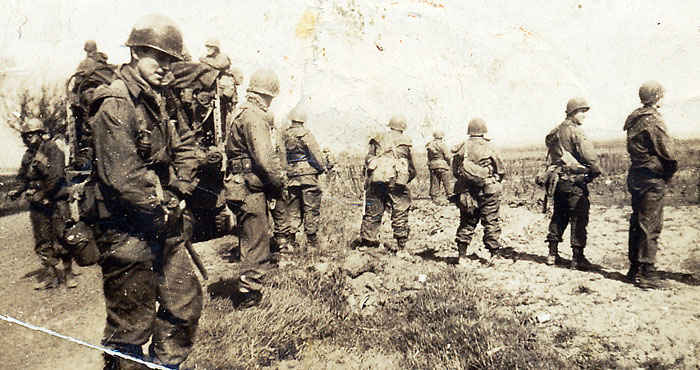 |
| Destination Bremerhaven, Germany. This is an example of an order. |
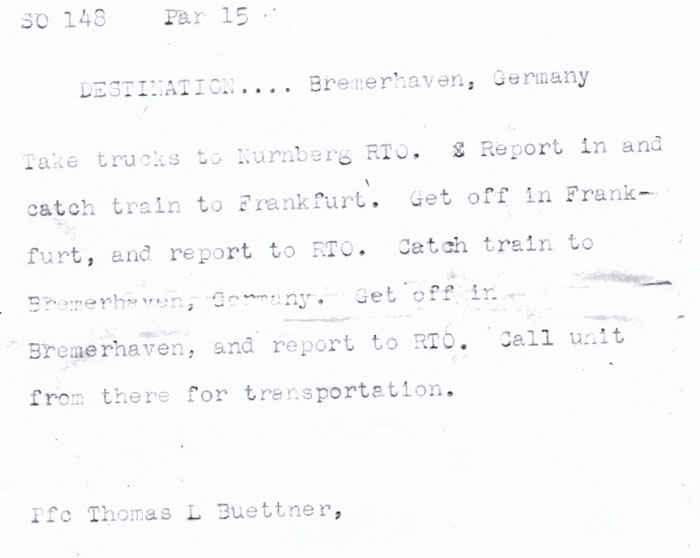 |
| My grandfather broke his arm while mitigating a prison skurmish. When he went to the hospital in Munch, Germany he found out he had a hernia and had to have surgery for that as well. |
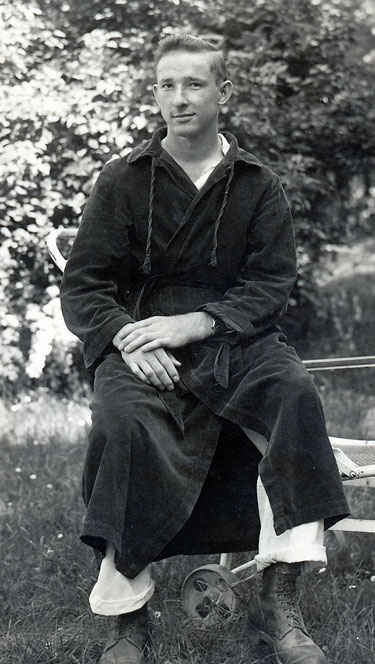 |
| My grandfather with his mother before leaving for Europe, January 18, 1945. |
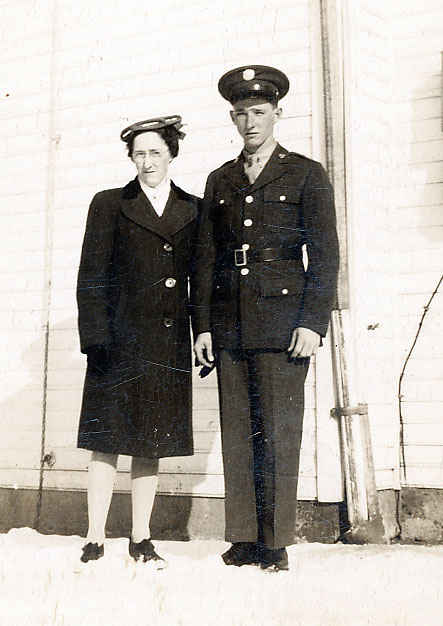 |
| My grandfather in front of the Austrian house he was billeted in. |
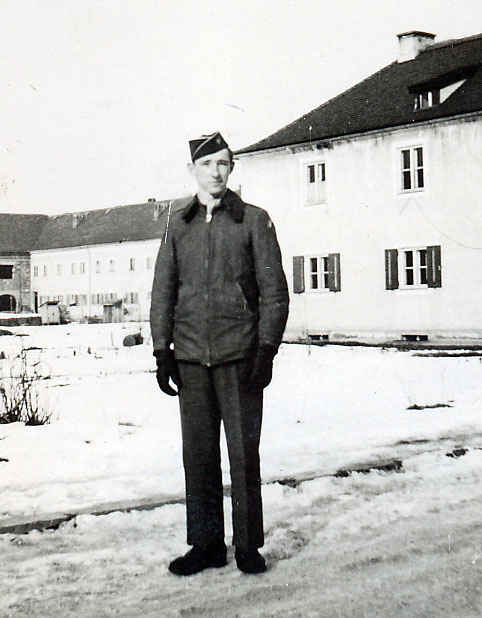 |
| Guard tower in Camp Hallein. My grandfather spent most of his time in Hallein on guard duty. |
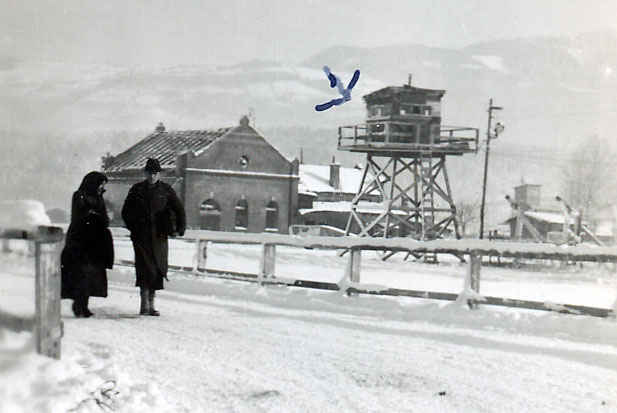 |
| German woman's field hockey game. |
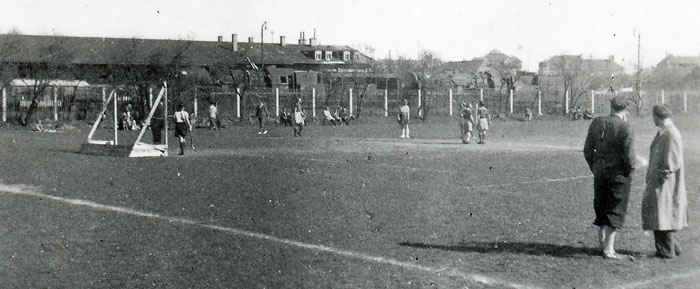 |
| This is the order that sent my grandfather back to the states. |
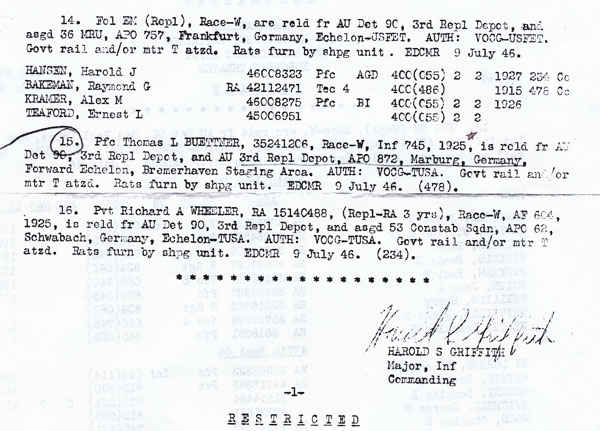 |
| My grandfather to the left and Dessel White to the right in May 1946. |
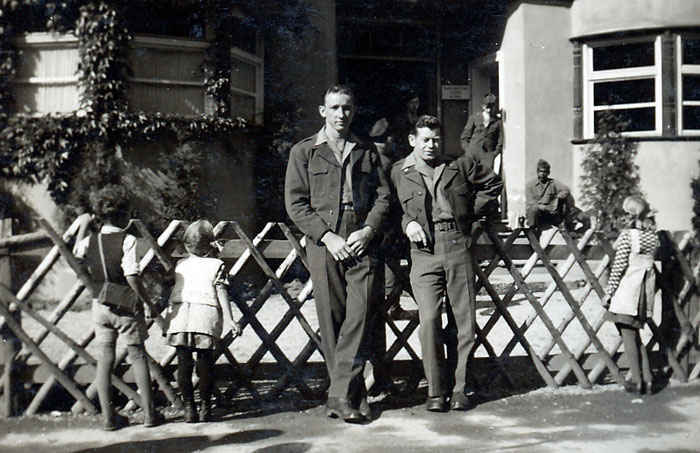 |
| Wurzburg, Germany the first town that my grandfather fought in. Parker is far left, my grandfather is second from the right. About 85% of the city was destroyed by Lancaster bombers. My grandfather arrived in Wurzburg a couple weeks after the fire bombing that destroyed the city. |
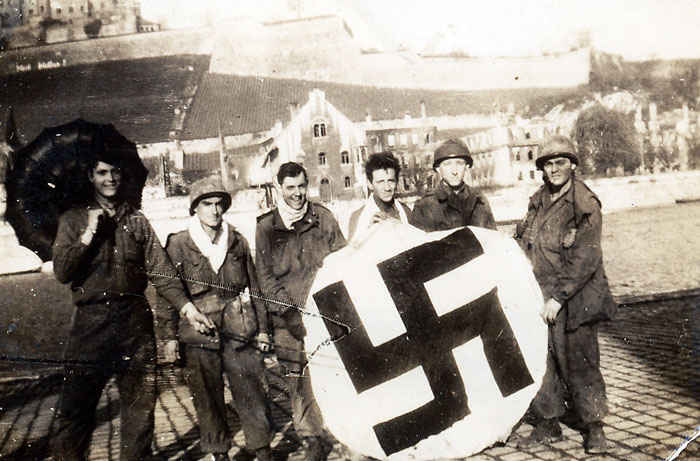 |
| My grandfather to the left and Kenneth Becker to the right. |
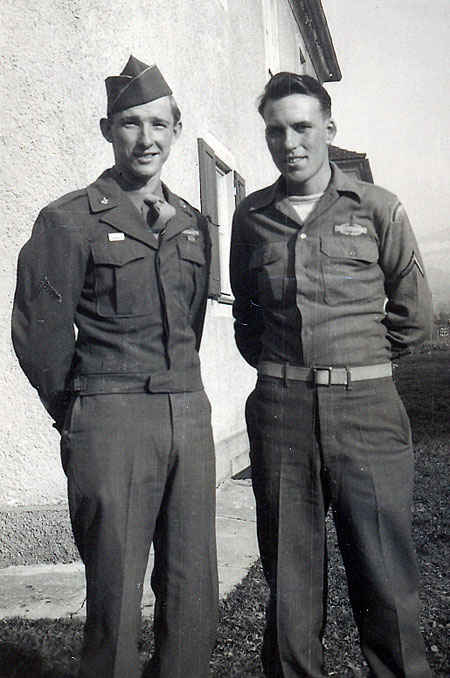 |
| 3rd Squad. Top row middle Thomas Buettner, top row right Parker. |
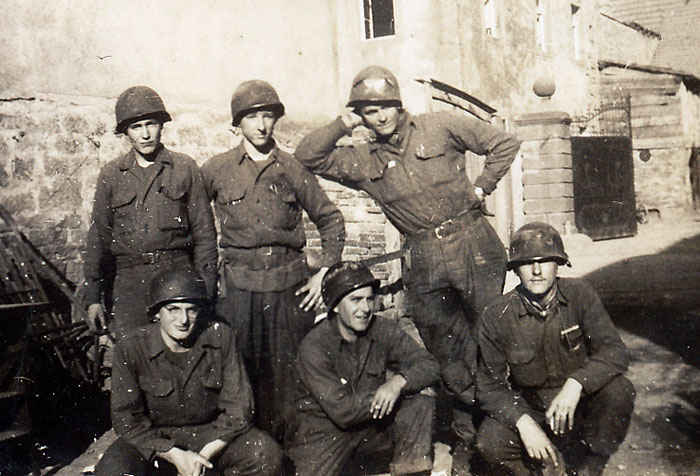 |
| My grandfather next to a jeep in Camp Hallein, Austria. |
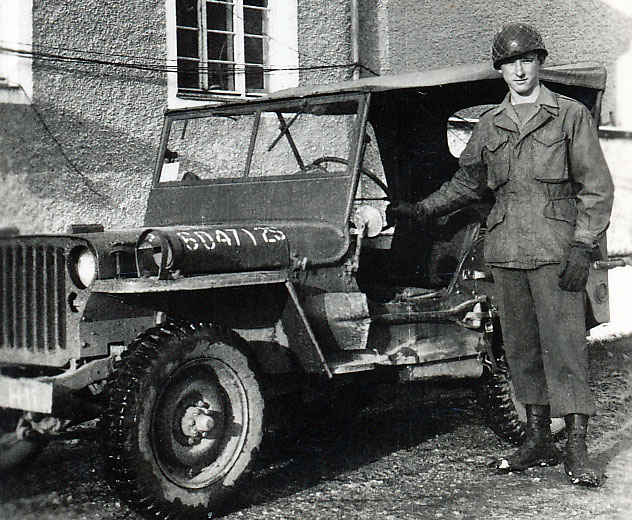 |
| This is a postcard that my grandfather purchased from the PX in Hallein. We often sent post cards back to his mother in the states, letting her know that everything was alright and he was safe. |
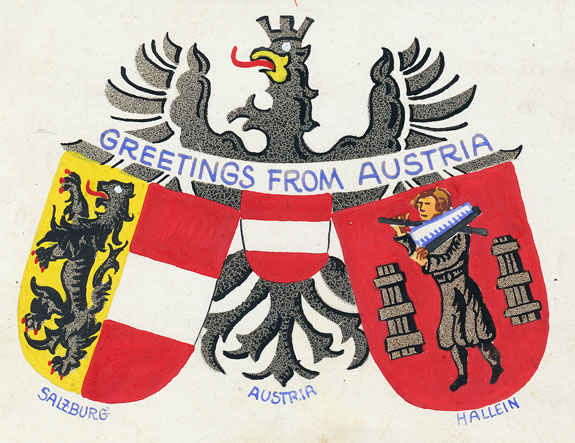 |